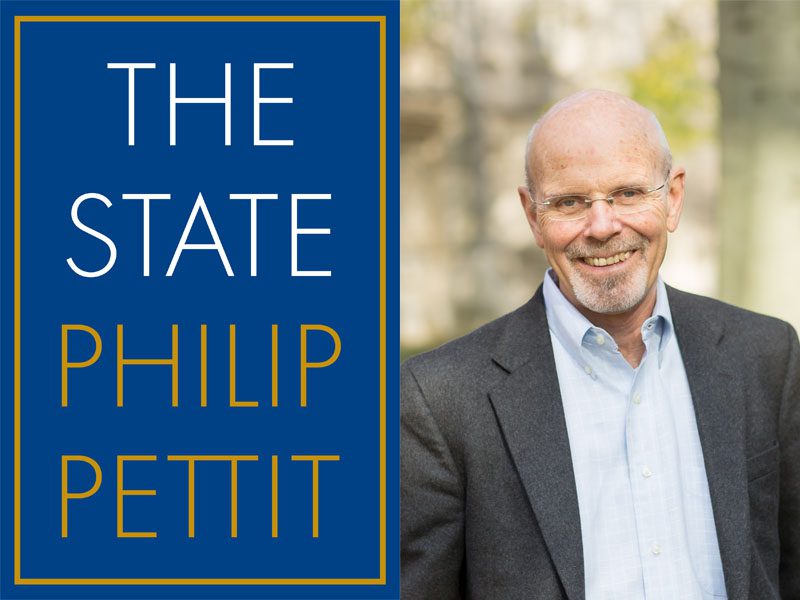Philip Pettit is the Laurance S. Rockefeller University Professor of Human Values in Philosophy and Politics. His book “The State” was published in March 2023 by Princeton University Press.
How did you get the idea for this project?
Political philosophy has been relentlessly normative, focused particularly on the idea of justice, over the past fifty years. I’ve always had a bad conscience about developing a theory of how society should be organized in justice, without a view of the devices available to organize it. Most of those devices connect in one way or another with the state. And so, I came to think that as a preliminary to normative political thinking, we should have a good idea of the powers and limitations that the state ought to have, assuming that it satisfies the minimal condition of giving the ruled some balance of power against their rulers.
How has your project developed or changed throughout the research and writing process?
It has taken six or seven years, and two graduate seminars, to develop the project and it has changed in a myriad of ways over that period, in good part because of discussions with students and colleagues and at presentations of the material elsewhere. The main development has been the adoption of a method that parallels the approach of H.L.A Hart in his classic account of law. This method involves constructing a scenario where the state does not yet exist, as Hart constructs a scenario in which law does not exist, and exploring systematically the considerations that might prompt people, without any contract or planning, to make adjustments that would give rise over time to a state.
What questions for future investigation has the project sparked?
A second book, seeking to build a normative theory of the just state on the basis of this positive account of the nature of the state. It’s to be called “From State to Republic,” since I am affiliated with a way of thinking about justice that derives from the long republican tradition that began in republican Rome, reappeared in the middle ages in Europe, and fueled the English revolution in C17 as well as the American and French revolutions in C18. My editors have suggested that I might call this second book “The Republic” but modesty, or at least the fear of looking immodest, forbids!
Why should people read this book?
Not a question for me to answer, I feel. But I suppose I can at least say this: the book breaks a drought of fifty years or more in offering a philosophical account of the nature of the state.
Learn more about other publications by Princeton University faculty in the humanities by exploring our Faculty Bookshelf.
















